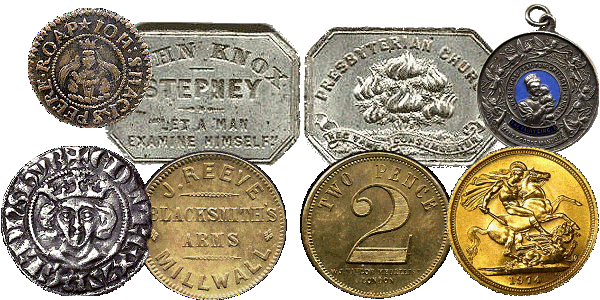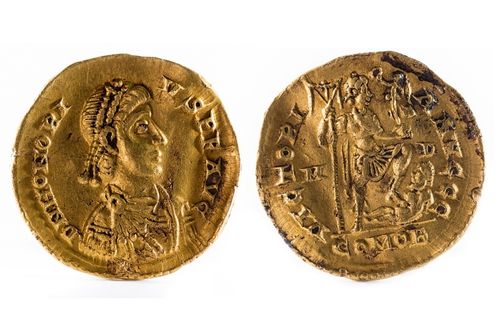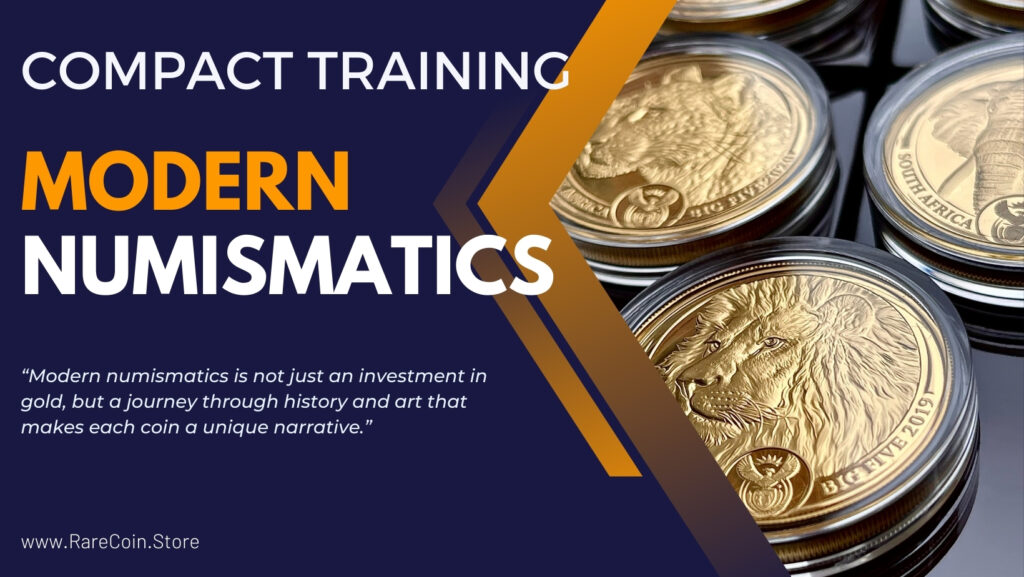Handy Tips On Deciding On Coin Collecting And Banknote Dealer
Wiki Article
How Can I Use An Online Database To Conduct Research On Numismatics As Well As Museums.
A database can be utilized to learn about exhibitions, museum collections and other research. It is a systematic method: Select a database which catalogs museum holdings and collection of numismatics. Options include museum databases like those provided by the British Museum, the Smithsonian Institution, or online platforms specializing in museum collections and numismatic artifacts.
Define Research Focus: Specify your research objectives. Are you interested in a particular museum's collection of numismatics, exhibitions that feature coins, academic publications related to numismatics, or the historical and cultural contexts of numismatic displays? Determine your goal to guide your study.
Search for keywords that pertain to both the numismatics (numismatics) and museums ("numismatic collection," coin exhibitions," catalogs for museums"), and include specific geographic or museum names in the event that they are applicable. Make use of the advanced search feature to narrow your search according to date or collection type.
Data Collection: Access to details regarding the numismatic artifacts which are kept in museums. It includes detailed descriptions artworks, photographs, provenance details and their significance in the past. Discover digital catalogs which list coins based on their the time period, culture or exhibition themes.
Analyse data to learn about the importance of museums and their numismatic collections. Examine how museums exhibit and interpret coins to fit in with larger historical and cultural narratives. Review the numismatic collections presented by different museums, with a particular focus on the strategies for education and interpretive frameworks.
Cross-Referencing: Confirm your findings by cross-referencing information across multiple museum databases or scholarly sources. This ensures the accuracy of your research and complete, giving you an overall view of the numismatics.
Documentation: Document all your research findings, noting all sources you used and mentioning the methods you used. Keep track of the specifics of the databases you used and the search terms you used, and how each source connects to your research.
Stay up-to-date: Museums and numismatic collections are always evolving. Check databases frequently for information on recent acquisitions, temporary exhibitions and scholarly works.
By following these steps, you will be able to allow you to make use of databases efficiently in order to explore the interplay between numismatics and museums. This method permits a thorough examination of the display as well as the interpretation and study of coins in museum settings. It provides insight into their educational, historical and cultural significance. Follow the top this hyperlink for blog tips including bullion coins, coin storage, banknote appraisal, coin minting, coin society, coin grading, coin dealer, coin die, coin minting, dollar and more.

How Can I Find Out More About Numismatics In Relation To Exhibitions And Show Events With A Database?
For numismatic research, it is important to utilize databases that store information about exhibitions, show, conferences, and other events. The following is a step-by-step guide for conducting this kind of study: Database selection: Select databases that are specifically designed for shows and exhibitions that are numismatic. Examples include websites of major organizations like the American Numismatic Association (ANA) websites that list worldwide numismatic events, or museum exhibition archives.
Define Research Focus: Specify your research objectives. Are you searching for forthcoming and past numismatic shows or conferences related to the subject, regional coin shows, themed exhibitions or educational events? Clarify the focus of your lookup.
Search Strategy: Use keywords such as "numismatic events," "coin exhibitions," and "numismatic events" to locate appropriate results. Include names of events, locations or topics If you'd like. Use advanced search options to filter results by the date, type of event (such as conferences, exhibitions), and geographic region.
Data Collection: Access details on past and upcoming shows and events that are numismatic. Details such as dates, organizers and locations of the events, special topics or collections, exhibitor taking part in the event, catalogues or publications related to the event, and more. It is possible to gather information. Search databases for virtual tours as well as digital access to exhibit items.
Analysis: Review the data to understand the trends, themes and educational purposes of numismatic shows and events. Analyze how different exhibitions and shows contribute to the public's knowledge of numismatics.
Cross-Referencing Check your findings by using data from various databases, event listings or official websites. This ensures completeness and accuracy of your research. This will provide a comprehensive overview of numismatic exhibition activities globally.
Documentation. Note your research findings by citing sources, and jotting down any methods you utilized. Note the database's names as well as the search terms and relevancy of each source in relation to your study.
Keep up to date Numismatics events are constantly changing and new shows, exhibitions and conferences scheduled frequently. Updates from numismatic associations organizers, event planners, as well as special databases are the best ways to stay informed about upcoming events.
These steps will help you explore numismatics through databases related to exhibitions and events. This approach allows a detailed analysis of the variety of educational value, as well as the academic value of numismatic exhibitions and events around the globe. Check out the top rated learn more here on precious metals for more info including coin auction, banknote authenticity, forint, currency, peso, coin holder, banknote value, numismatic investment, banknote show, coin holder and more.

What Can I Do With The Database To Look Up Numismatics In Relation To Authentication Services?
In order to conduct research in numismatics related to authentication services, it is essential to use databases that concentrate on authenticity of coins, certification agencies and methods for detecting counterfeits. A structured approach is provided to help you conduct this research. Examples include certification agency websites (like PCGS, NGC) as well as numismatic research platforms and publications from numismatic societies.
Define Research Focus: Specify your research objectives. Do you wish to learn more about the methods of authentication used by certification agencies Are you curious about methods to detect counterfeits, the historical methods used to identify coins or the way authentication impacts coin values. Make clear the goal of your search.
Search Strategy: Choose specific keywords such as "coin verification,"" "certification agents," "copyright-detection," and include agencies or authentication technology (such at spectroscopy micro-imaging) in the event that it is relevant. Utilize advanced search to filter results based on date, authentication methods and case studies.
Data collection: Get information about authentication techniques employed by certification organizations. Gather information on the authentication requirements and techniques (such as coin imaging systems, or X-ray Fluorescence) and historical perspectives on authentication of coins and case studies.
Review your data in order to know the reliability and efficacy of the authentication process. Examine how certification agencies authenticate and detect copyright coins and maintain accuracy and consistency of authenticating and grading processes. Compare authentication processes across different agencies, or compare technological advancements in the past.
Cross-Referencing. Make sure your findings are correct by cross-referencing your findings in multiple databases. This includes websites of certification agencies, numismatic magazines as well as historical archives and publications. This will ensure accuracy and the completeness of your research. The book also gives a comprehensive overview of the methods of authentication used in numismatics.
Documentation: Documentation is essential. Cite sources and note the methods employed. Note the details of the databases used, search terms used, as well as the importance of every source you use to answer your research questions.
Stay up-to-date: Standards and authentication technologies develop as technology advances and new threats to counterfeits emerge. Keep up to date by keeping track of updates from certification organizations and the numismatic literature.
These steps can help you explore numismatics using databases that are related to authentication. This method allows for a thorough investigation into the methods used as well as the techniques employed and the historical practices for authenticating coins. It provides insights into the credibility of authentication and the impact it has on numismatic collecting and trading. View the most popular sell about gold coins for website recommendations including coin blank, proof coins, banknote holder, coin identification, banknote rarity, banknote history, banknote club, banknote marketplace, copyright detection, banknote artist and more.

How Can I Utilize The Numismatics Database To Research Conservation And Preservation Experts?
Researching numismatics with regards to conservation experts and preservation specialists requires utilizing databases that focus on conservation techniques, preservation methods as well as case studies of numismatic artifacts, and contributions from conservation experts. Here's a structured approach to conduct research on this subject: Database Selection: Choose databases that focus on conservation and preservation of heritage cultural sites, which includes the numismatic artifacts. Examples include conservation organization websites (such as the International Institute for Conservation of Historic and Artistic Works) museums conservation departments and specialized numismatic conservation publications.
Define Research Focus: Specify your research objectives. You might be interested in learning about conservation techniques used on numismatic artifacts. Case studies of restored medals or coins, prevention conservation measures, ethical considerations or conservation of numismatics. Find the answers to your questions and help you.
Search Strategy: Make use of keywords such as "numismatic conservation," "coin preservation methods," "conservation practices for medals," and include specific conservation techniques (such as cleaning, stabilization storage) or historical periods, if appropriate. Advanced search options allow you to narrow your search based on date, conservation subject, and case studies.
Data Collection: Get access to relevant information about conservation techniques and preservation methods used to preserve numismatic artworks. Collect details, such as articles about the conservation prevention, interviews with conservation experts cases studies on the treatment of collections, and guidelines for managing and storing collections.
Analyze data to understand numismatic conservation. Analyze the impact conservation treatments have on the numismatic object, the importance of scientific analysis to conservation decisions, and the integration of ethical principles into conservation methods.
Cross-Referencing. Check what you've discovered by cross-referencing data from various databases. This can include conservation organizations' websites and museum conservation departments. This lets you complete a thorough and accurate study on the subject of conservation of numismatics.
Documentation: Document your findings systematically, citing sources and noting the methodologies employed. Note the database's names as well as the search terms and relevancy of each source in relation to your research.
Keep up to date: Conservation techniques and preservation standards are evolving as technology advances and scientific research. For the latest developments in numismatics, keep up to date with the latest news from conservation organisations, museum conservation department, and specialized conservation publications.
By following these steps, you will be able to allow you to effectively explore numismatics and conservation experts. This method allows for a thorough analysis of the practices of conservation, the ethical practices, and the contributions of conservationists in preserving numismatic artifacts, offering an understanding of the difficulties and advances in protecting cultural heritage through numismatic conservation practices. See the best rupee for more info including currency history, banknote storage, banknote holder, dollar, rial, rial, coin book, nickel, krona, banknote identification and more.

How Can I Find Out More About Numismatics Regarding Industry Consultants?
Researching numismatics with regards to industry consultants requires using databases that concentrate on consulting firms, individuals consultants, industry reports and publications from organizations like numismatic society. Here's a method to conduct research on this subject: Database Selection: Choose databases that are specialized in consulting companies, industry reports, and other publications that are relevant to numismatics. Examples include business listings, consulting firm websites, and publications of numismatic associations.
Define Research Focus: Specify your research objectives. Are you interested in knowing more about the services of consulting offered to numismatic businesses Market analysis reports, market analysis on numismatics, the expertise of individual consultants in specific numismatic sectors, or trends that industry consultants have identified? Let us help you.
Search Strategy: Use keywords such as "numismatic industry consultant", "numismatic consultancy firms", or "market analyses of coins" to locate appropriate results. If applicable you could also include geographic regions as well as specific areas of knowledge. Advanced search is a way to filter results by consultant specialties or consulting services.
Data Collection: Access information on firms that specialize in numismatics, as well as industry experts who provide services to numismatic businesses. Find information about consultants, such as profiles, areas of specialization (market analysis as well as collection management and authentication) customer testimonials, and reports authored by industry consultants.
Analyse the data in order to assess the function and contribution of consultants within the numismatic market. Analyze the strategies and skills employed by consultants to advise on investing in numismatics trends in the market, or collection management.
Cross-Referencing Verify findings by cross referencing information from different databases, consulting firms directories, numismatic publications, as well as an industry report. This ensures the accuracy and completeness of your research. It also gives a comprehensive picture of the consulting market in numismatics.
Documentation - Record your findings in a systematic manner including sources and the methods you used. Notate the database names as well as the search terms and relevancy of each source in relation to your research.
Stay informed Consultancy services and market trends in numismatics are evolving with economic changes and regulatory updates. Stay up-to-date by keeping track of updates on consulting firm websites, industry publications, and numismatic societies' publications. They'll provide latest perspectives and insights from experts in the industry.
Use these guidelines to utilize databases efficiently to study numismatics with regard to industry consultants. This technique permits a thorough examination of market analysis and strategic insights offered by consultants in the numismatic sector. They are able to provide valuable perspectives on business operations, investment strategies and market dynamic. View the recommended a replacement on currency society for more tips including dime, coin book, coin magazine, banknote society, legal tender, coin collecting, collection, rare banknotes, banknote club, coin appraisal and more.
